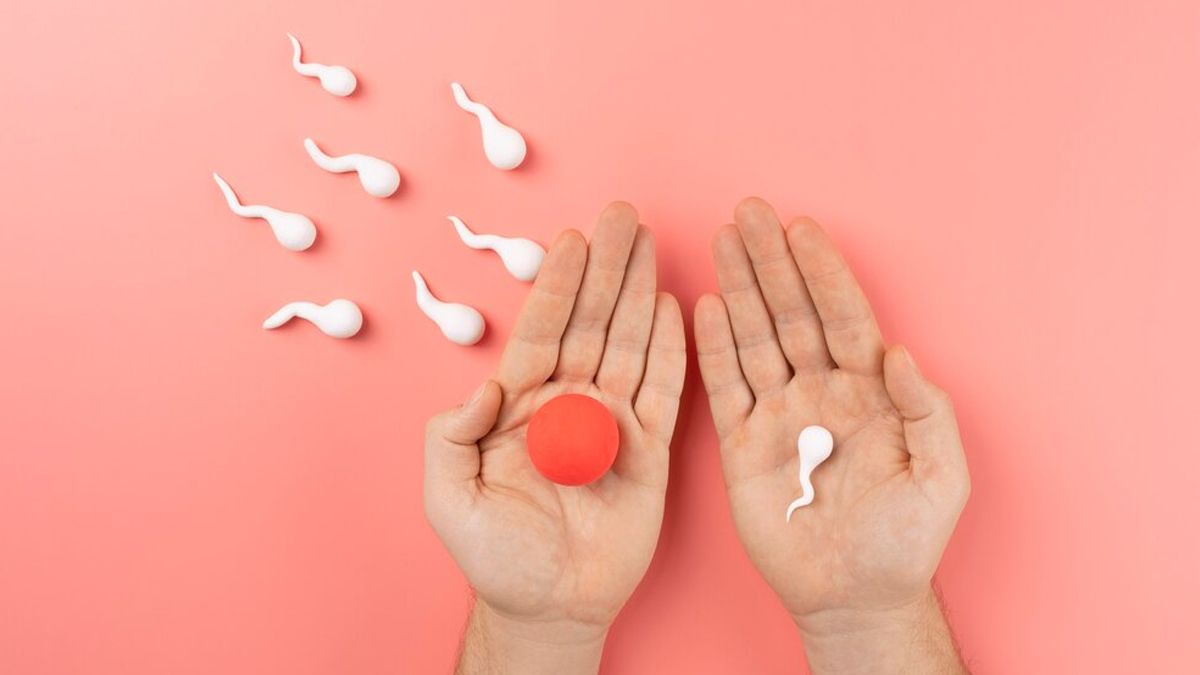
For those looking to build strength without equipment, bodyweight exercises can be highly effective. These exercises use your own body weight as resistance to boost strength, power, endurance, flexibility, and balance.
Table of Content:-
Among these, hip thrusts stand out as a great way to strengthen the glutes, hamstrings, quads, core, and lower back while also improving posture, balance, and hip mobility. However, recent claims on TikTok suggesting that hip thrusts could impact women's fertility have raised concerns. To address these worries, we consulted an expert, and here’s what she had to say.
Also Read: Hip Thrusts Vs Glute Bridge: Expert Shares The Differences And Benefits
Do Hip Thrusts Affect Fertility?

“It is very important to understand that exercise is not a problem,” said Dr Jyoti Tripathi, Fertility Specialist at Nova IVF Fertility, Indore, highlighting that it is the type, intensity, frequency, and duration of exercise that impact the reproductive function and fertility outcome.
While moderate exercise typically strengthens general health, some individuals will find that extreme or intensive physical activity harms their ability to conceive. She explained, “Hormonal disorders can be triggered by overtraining, leading to irregular menstrual periods or even amenorrhoea in women. Few studies suggest that because of increased oxidative stress, men who subject themselves to extreme physical efforts tend to have fewer and poorer-quality sperm.”
A systematic review published in the Journal of Physical Activity and Health found mixed evidence for the effect of physical activity on female fertility, with some studies suggesting benefits for maintaining body weight and hormone levels, while excessive activity could inhibit ovulation.
For males, moderate physical activity was linked to improved fertility through better semen parameters, whereas high-intensity activity might be harmful. Overall, the relationship between physical activity, sedentary behaviour, and fertility remained unclear, highlighting the need for further research.
So, Dr Tripathi shared that there is no scientific data or evidence to prove that hip thrust exercises specifically affect fertility or reproductive outcomes. However, it is crucial to find a balanced regimen of exercising, she advised. In some women, intense physical activity or exercise may have a negative effect on women planning to conceive, but it is crucial to speak to a doctor before coming to any conclusions.
Why Exercise Intensity Is A Concern

According to a mini review published in the F&S Reports, vigorous exercise can negatively affect fertility in healthy women, particularly when paired with a caloric deficit. A 2003 research study showed that 58% of runners experienced menstrual abnormalities, compared to 9% of sedentary women, with lower luteal progesterone levels and reduced oestradiol metabolites linked to low energy balance. Two large studies conducted in 2009 and 2012 further found that vigorous exercise reduced pregnancy odds by up to 32% in women exercising less than or equal to 5 hours/week, while moderate activity increased conception chances by 15%.
Dr Tripathi explained, “Intense exercise can disrupt the Hypothalamic-Pituitary-Gonadal (HPG) axis, which regulates hormones related to reproduction. This can lead to a decline in the levels of oestrogenic and progesterone hormones, which are essential to maintaining menstrual function. The disruption in the HPO axis can lead to irregular menstrual cycles, scanty menstrual cycles, and, in extreme situations, absent menstrual cycles.”
Additionally, excessive exercise can lead to ovulatory disturbances, poor endometrium, and increases the risk of abortion, added the doctor, highlighting that in males, it can inhibit sperm production due to a decline in testosterone levels.
However, it is important to note that more research is needed to confirm the link between intense exercises and fertility.
Exercises To Do To Improve Fertility

Dr Tripathi recommended low- to moderate-impact exercises, such as yoga, walking, swimming, and low- to moderate-strength training exercises, which are excellent for fertility because they reduce stress, improve circulation to the reproductive organs, and keep hormones in check. However, excessive endurance or extreme-intensity workouts, such as ultra-marathons or intense, constant weightlifting, can negatively impact fertility due to hormonal disruption.
As far as hip thrusts are concerned, she mentioned that they would increase blood flow and strengthen the core muscles to enhance the reproductive organs, thereby improving the general health condition of the reproductive system. Strength-training workouts must be done properly in terms of form, followed by rest and recovery time under supervision, she added.
Bottomline
When it comes to your reproductive health and supporting your fertility, exercises like hip thrusts can be beneficial. Dr Tripathi shared that it is not the exercise itself that is harmful but the intensity that can cause problems. "Focus on steady, moderate physical activity as opposed to trying to fit into overly strenuous routines,” she said, adding, “Integrate stress-reducing activities like Pilates, yoga, brisk walking, cycling, etc., in addition to achieving some amount of aerobic and strength training.”
She concluded by saying, “Never overtrain, avoid vigorous high-intensity exercise, and ensure a healthy lifestyle; take adequate sleep with healthy nutrition and pay attention to your body's signs. It is very important not to neglect any symptoms while you are trying to train your body. Meeting with a fertility specialist or a fitness professional can be useful in tailoring a plan for a safe, healthy workout program that enhances health and fertility at the same time.”
Also watch this video
How we keep this article up to date:
We work with experts and keep a close eye on the latest in health and wellness. Whenever there is a new research or helpful information, we update our articles with accurate and useful advice.
Current Version